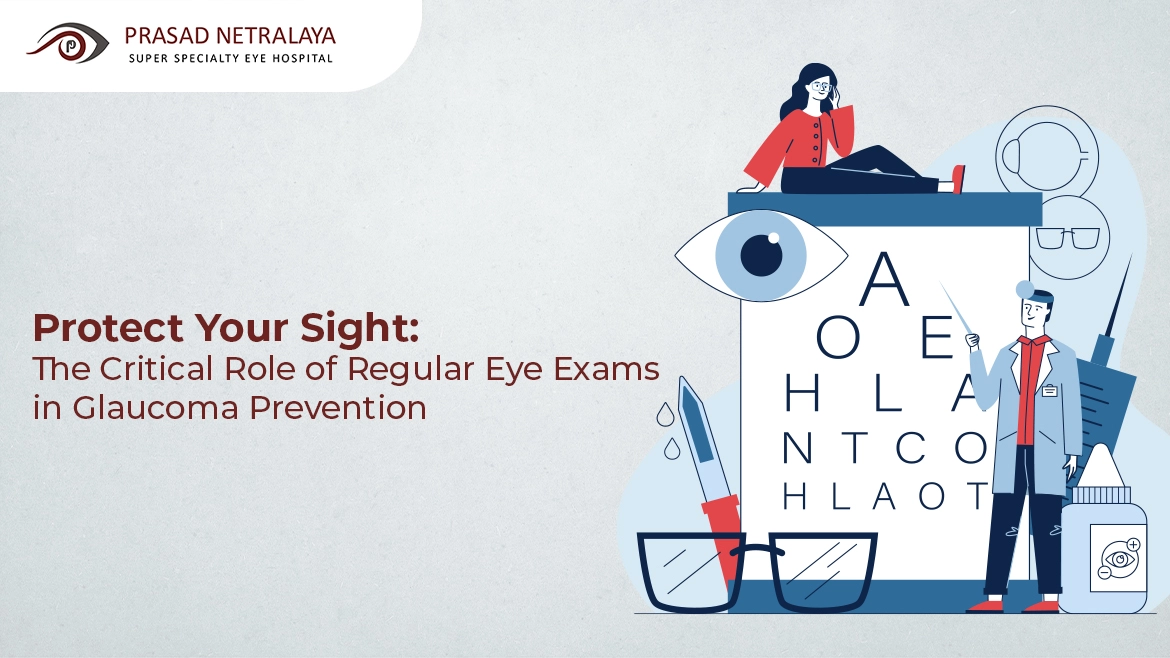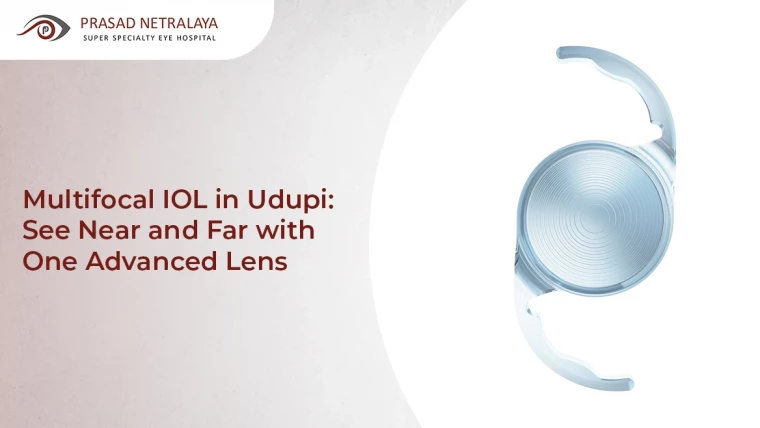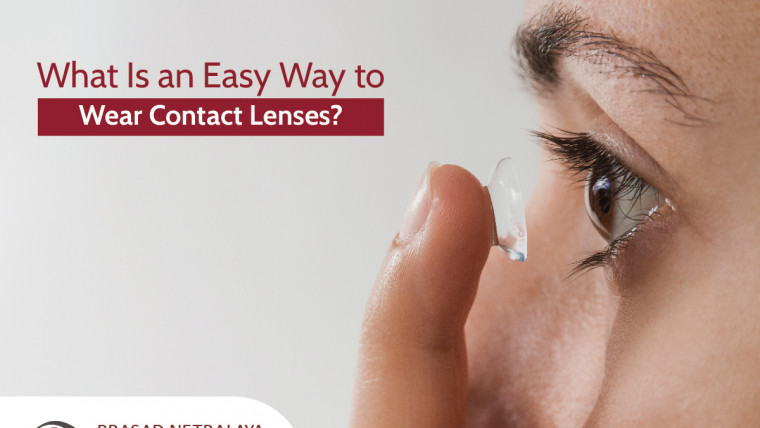Many people may not realize that regular eye exams can protect against glaucoma, a condition that can severely impact vision. Glaucoma often has no symptoms initially, but it can lead to vision loss if not detected early. Since good eyesight is crucial for our daily lives and overall happiness, compromising on it can have serious consequences. That’s why it’s so important to prioritize our eye health and schedule regular eye exams. Doing so helps achieve a clear vision and enjoy life to the fullest, with utmost clarity.
Table of Contents
What is Glaucoma?
Glaucoma, often referred to as the “silent thief of sight,” is a collection of eye conditions that can result in irreversible vision loss if not managed appropriately. It primarily affects the optic nerve, usually due to increased pressure inside the eye.
There are several types of glaucoma, including Open-Angle Glaucoma, Angle-Closure Glaucoma, Normal-Tension Glaucoma, Secondary Glaucoma, and Congenital Glaucoma.
What is the Role of Regular Eye Exams
Glaucoma is the second leading cause of blindness globally, according to World Health Organization. If people made regular eye exams a part of their routine, we could significantly lower those numbers. The tricky thing about glaucoma is that it sneaks up on you—it’s like that slow poison we often hear about, with damage that doesn’t show right away.
Let’s take a look at a few reasons why regular eye exams can make all the difference
- Early Detection of Glaucoma: Regular eye exams can detect glaucoma before you even notice any symptoms. Since early-stage glaucoma often has no evident warning signs, regular check-ups are a great way to catch it early and start treatment to protect your vision from further damage.
- Monitoring Intraocular Pressure: Checking your eye pressure is a big part of every eye exam, as high pressure is the main indicator of glaucoma risk. By monitoring it regularly, doctors can act quickly if it starts to rise.
- Optic Nerve Assessment: Eye exams also include a look at your optic nerve, which is crucial for vision. Glaucoma usually affects the optic nerve first and if it’s spotted early on, it can prevent your sight from worsening.
- Personalized Risk Assessment: Based on your age, family history, and other health factors, your eye doctor can personalize advice for how often you should get checked and what steps you can take to reduce your glaucoma risk.
What Happens During Glaucoma Eye Exam?
A detailed eye examination for Glaucoma includes several non-invasive tests to assess factors that could harm your vision. These procedures are painless, thorough, and won’t take long.
Here’s what it includes:
- Tonometry: This test measures the pressure inside your eye, known as intraocular pressure (IOP), to detect any abnormal spikes that could indicate glaucoma.
- Visual Field Test: This examines your peripheral (side) vision to detect any blind spots, which can be an early sign of glaucoma.
- Optic Nerve Examination: By assessing the optic nerve’s appearance, the doctor can look for signs of glaucoma-related damage.
- Pachymetry: This test measures the thickness of your cornea, which helps to interpret intraocular pressure readings more accurately.
- Gonioscopy: A specialized lens is used to check the drainage angle in your eye, where fluid flows out, as blockages here can cause glaucoma.
If you’re thinking, “Where can I find the best eye doctor near me?” Read this blog to get the answers you need.
Recommended Frequency for Eye Exams:
Here’s a general guide on the number of times one should check their eyes based on the different age groups:
- Ages 20-39: Every 5 years, unless risk factors are present.
- Ages 40-60: Every 1-3 years, as eye health risks increase with age.
- Ages 61+: Every 1-2 years, with annual exams recommended.
Certain risk factors—such as family history, diabetes, or high eye pressure—may require more frequent checkups. Always consult with an eye care professional to receive personal guidance.
Who Faces the Highest Risk for Glaucoma?
While anyone can develop glaucoma, the individuals listed below are particularly at a higher risk for the condition.
- Individuals over 40 are at a higher risk of developing glaucoma, with increased likelihood after age 80.
- A family history of glaucoma can raise the chance of the risk, particularly among immediate relatives.
- Certain ethnic groups, including those of African-Caribbean and East Asian descent, are more prone to specific types of glaucoma.
- Individuals with diabetes, high blood pressure, or pre-existing eye conditions face a greater risk of glaucoma.
- Individuals with thin corneas are at an increased risk for this type of Glaucoma: Primary open-angle glaucoma (POAG).
If you’re unsure about which glasses would suit your face shape, check out our blog: “How to choose glass frames for your face shape?”
What Are the Benefits of Early Detection of Glaucoma?
Here’s how early detection through regular eye exams can help:
1. Preventing Vision Loss:
Detecting Glaucoma early means treatment can start sooner, reducing vision loss before it worsens. People diagnosed in the early stages are likely to maintain better vision compared to others.
2. More Treatment Options:
When caught early, you can choose from a range of treatments, it could be eye drops, medications, or even quick laser procedures. This flexibility can help avoid the usage of more invasive procedures later on.
3. Better Long-term Vision:
Regular eye exams mean any minute changes are also caught quickly, allowing your eye doctor to adjust treatment as needed. Patients who stick to regular checkups tend to keep their vision more stable over time.
Experience the Ease of Regular Eye Exams with Prasad Netralaya
At Prasad Netralaya, we understand the role of regular eye exams in maintaining your vision. Our experienced professionals are dedicated to providing personalized care with every visit. If you do get detected for glaucoma, there’s no need to panic! While it may not be curable, we can help preserve your vision and prevent further damage. We offer effective medications and advanced procedures, including laser glaucoma surgery and trabeculectomy, tailored to your specific vision needs.
Book an appointment with us today. We are here to support you on your journey to clear, healthy vision!
Frequently Asked Questions (FAQs):
Can glaucoma be prevented if detected early?
Yes, early detection can control glaucoma through medications or surgery, protecting against serious vision loss. While anyone can develop glaucoma, certain individuals are more prone to developing it.
Can a regular eye exam detect glaucoma?
Yes, eye doctors can detect glaucoma during routine exams by checking for elevated intraocular pressure and optic nerve damage. If any signs are found, further testing may be done to confirm the diagnosis.
How to prevent getting glaucoma?
Maintaining a healthy lifestyle, including a balanced diet and regular exercise, can help reduce the risk of glaucoma. Additionally, managing blood pressure and avoiding smoking are effective preventative measures.
What is the importance of having good eyesight?
Good eyesight is essential as it allows us humans to view the environment and world around us with clarity. Performing day-to-day tasks can be difficult without good vision. Therefore, maintaining good eyesight improves our overall quality of life.
What are the first signs that glaucoma is developing?
Early signs of glaucoma can include eye pain, headaches, and seeing rainbow-coloured halos around lights. Other symptoms may involve blurred or narrowed vision, and in some cases, nausea.
Does everyone need an eye test?
Yes, everyone should have their eyes tested regularly, ideally every two years, to check for vision problems and early signs of eye diseases.
Dr. Vikram Jain, M.S. had his medical training (MBBS) from Kasturba Medical College, Mangalore, India. He did his master’s in Ophthalmic surgery from Kasturba Medical College, Manipal. He currently manages the Glaucoma department of Prasad Netralaya hospital.



